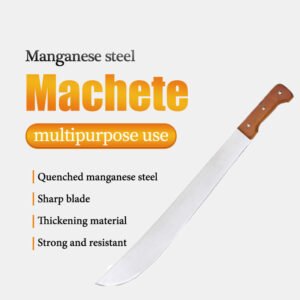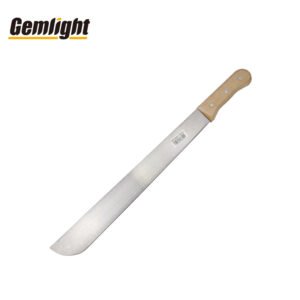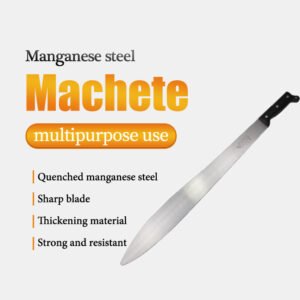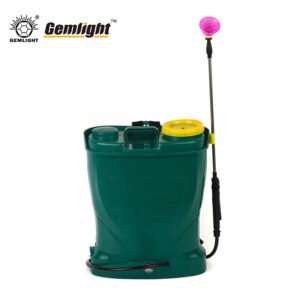Gardening tools are the backbone of every landscaping, farming, and agricultural project. Whether you are maintaining a small garden, managing a plantation, or distributing agricultural tools, knowing where to buy good gardening tools can make a big difference in performance, durability, and profit.
This guide walks U through the essentials — what to look for, where to source, and how to build long-term supplier relationships for your business.
1. Understanding What “Good Gardening Tools” Really Mean
Good gardening tools are not just about price — they are about functionality, durability, and comfort. A professional gardener or agricultural worker relies on tools that can handle heavy use while ensuring safety and efficiency.
High-quality tools should offer:
-
Strong steel blades (preferably high-carbon or manganese steel)
-
Ergonomic handles (wooden or fiberglass)
-
Corrosion resistance through polishing or paint
-
Reliable assembly that prevents loosening over time
Common examples include hoes, shovels, machetes, rakes, sickles, and spades — all essential for soil preparation, cutting, and harvesting.
2. Types of Gardening Tools You Should Know
Before you decide where to buy good gardening tools, understand the main categories:
(1) Digging Tools
Used for breaking soil, planting trees, and transferring materials.
Examples: Shovels, spades, post hole diggers.
(2) Cutting Tools
For trimming, pruning, and clearing vegetation.
Examples: Machetes, pruning shears, hedge clippers, sickles.
(3) Soil Preparation Tools
Designed to loosen, mix, and level soil.
Examples: Hoes, forks, and rakes.
(4) Watering Tools
Essential for irrigation and plant maintenance.
Examples: Watering cans, hoses, sprinklers.
(5) Harvesting Tools
Used during crop collection or field clearing.
Examples: Harvest knives, reaping hooks, cane machetes.
Understanding your product categories helps you target the right manufacturer or wholesaler for your business.
3. Key Features to Look for When Buying Gardening Tools
When searching for where to buy good gardening tools, quality inspection should always come first.
Here’s what to check:
| Feature | What It Means | Why It Matters |
|---|---|---|
| Material Quality | High-carbon steel, tempered and polished | Ensures strength and longevity |
| Handle Design | Wood or fiberglass, ergonomic grip | Reduces fatigue during long use |
| Surface Finish | Paint, polish, or anti-rust coating | Protects against corrosion |
| Assembly Strength | Tight riveting or welding | Prevents handle loosening |
| Balance | Even weight distribution | Increases precision and control |
These details determine whether a tool will last for years or fail after one season.
4. Best Places to Buy Gardening Tools
Here are the most reliable channels for finding high-quality gardening tools at competitive prices:
(1) Direct from Manufacturers
Buying directly from manufacturers or factories ensures:
-
Lower prices (no middlemen)
-
Customization for OEM or private label
-
Quality control and consistency
-
Flexible packaging and branding options
Example: Chinese factories like Gemlight specialize in hoes, machetes, and shovels with high-carbon steel blades and export to Africa and South America — markets that value both quality and cost-efficiency.
(2) Wholesale Marketplaces
Online B2B platforms such as Alibaba or Made-in-China offer easy supplier comparisons. Look for:
-
Verified manufacturers
-
On-site inspection records
-
Clear MOQ (minimum order quantity)
This approach suits distributors looking to test small batches before scaling.
(3) Local Distributors
For quick stock availability, buying from regional distributors can save shipping time. However, prices may be higher compared to direct factory sourcing.
(4) Trade Shows
Attending hardware and agricultural fairs allows U to see and test products in person. Trade shows also help U negotiate deals, explore trends, and meet manufacturers face-to-face.
5. Why Chinese Manufacturers Lead the Gardening Tool Market
China has become a global hub for agricultural tool production due to:
-
Access to high-quality steel
-
Experienced labor and advanced heat treatment
-
Flexible OEM and ODM services
-
Cost-effective logistics
Factories in Hebei, Shandong, and Zhejiang are known for producing machetes, shovels, hoes, and sickles with professional export experience.
For B2B buyers, this means stable supply chains and a wide range of customizable options.
6. How to Evaluate a Reliable Supplier
Not all suppliers are equal. Before placing a large order, always check:
-
Company certifications (ISO, SGS, BV)
-
Material test reports
-
Sample quality and finish
-
Response time and communication clarity
-
Shipping and after-sales support
A professional manufacturer should provide full documentation, including packing details, delivery schedule, and warranty.
7. Common Mistakes to Avoid When Buying Gardening Tools
-
Focusing only on price – Cheaper tools often have poor steel quality.
-
Ignoring handle comfort – Poor ergonomics increase worker fatigue.
-
Not checking supplier reliability – Delays or inconsistent batches can hurt your business.
-
Skipping surface treatment inspection – Tools without anti-rust finishing fail quickly in humid climates.
Always balance price, performance, and supplier reputation.
8. Building a Long-Term B2B Relationship
For distributors or wholesalers, the key to sustainable profit lies in long-term supplier partnerships. Reliable factories often offer:
-
Stable pricing for repeated orders
-
Custom branding and packaging
-
Fast reordering and logistics support
-
Flexible payment options for loyal buyers
Consistent collaboration builds trust and helps U secure exclusive deals in your market.
9. Global Trends in Gardening Tool Demand
The global gardening tools market continues to grow as:
-
Urban gardening and landscaping rise worldwide
-
Agricultural modernization boosts demand in Africa and South America
-
Government reforestation projects increase need for digging and planting tools
Distributors who secure reliable suppliers early can benefit from this steady growth trend.
10. Final Tips for Buyers
Before placing bulk orders:
-
Always request samples and compare.
-
Ask about OEM/ODM options if U plan to build a private label.
-
Verify production capacity to ensure timely delivery.
-
Discuss export packaging standards (carton, wooden box, or pallet).
Choosing wisely not only improves your business reputation but also builds customer trust.
Conclusion
Knowing where to buy good gardening tools is the first step toward long-term business success. From selecting reliable manufacturers to checking product quality and forging solid B2B partnerships, every decision affects your market advantage.
With durable, well-designed tools, U empower farmers, gardeners, and landscapers to work faster and smarter — and that’s the foundation of every profitable tool distribution business.
Related products




